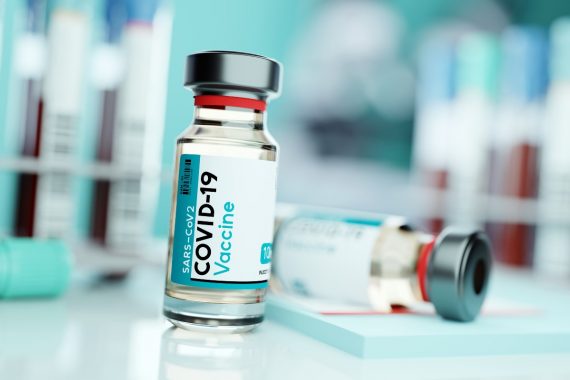PHE accused of ‘misleading’ immunosuppressed with vaccine efficacy claims

Public Health England (PHE) has been accused of ‘misleading’ immunosuppressed patients with its claims about vaccine efficacy among the group.
A spokesperson said there will be some immunosuppressed patients ‘who may not respond as well to the vaccines’ and that further research is needed to ‘fully understand this’.
Last week, PHE announced that data shows Covid vaccines are 74% effective in the immunosuppressed after a second dose is given – rising from 4% after the first.
But charities representing immunosuppressed patient groups called for PHE’s press release to be retracted, saying the ‘generalised’ way the data was presented could put patients ‘at further risk’ if they are given a false sense of security.
Blood Cancer UK said: ‘We are deeply concerned that the way this press release represents the study’s findings is misleading and could put people with blood cancer at further risk. It should be retracted.’
Blood Cancer UK CEO Gemma Peters told Pulse: ‘The study states that vaccine response is lower in the immunocompromised and there are too few immunocompromised people to draw confident conclusions.’
She added that there are ‘a wide range of health conditions that weaken people’s immune systems and it is unhelpful to make generalised conclusions.’
Ms Peters said: ‘Our advice to people with blood cancer remains the same. While there is a lot of uncertainty, there is enough reason to think the vaccines may not work as well for some people with blood cancer to continue to be cautious even after having both doses.’
Kidney Care UK added that protection is ‘likely to vary’ even among specific disease groups.
A Twitter thread said: ‘We know from speaking to kidney teams across the UK that the protection individual kidney patients have is likely to vary. Some people with early-stage Chronic Kidney Disease will have the same protection as any other member of the public would, yet someone who has had a transplant and who is on a high dose of immunosuppressant medication is likely to have a reduced response.’
‘A review of current studies shows that transplant recipients on high doses of immunosuppressants are likely to produce fewer antibodies following vaccination than the general population. Therefore a generalised percentage like this does not take into account the variances in condition or treatment and could lead some people to think they have more protection from the vaccine than they do.’
Following the calls for clarification, PHE updated its press statement on Saturday to say that some people in clinical risk groups might not respond well to Covid vaccines.
The update said: ‘Within these clinical risk groups, there will be people with more severe forms of illness – particularly in the immunosuppressed group – who may not respond as well to the vaccines, and we recommend they seek advice from their specialists.’
A PHE spokesperson today told Pulse: ‘We understand the concerns of people with underlying health conditions, particularly those who shielded earlier in the pandemic.
‘We hope our findings provide some reassurance that the vaccines are very effective for the majority of people, especially after two doses. Further data is needed to fully understand this and we look forward to seeing the outcome of ongoing research into this area.’
They reiterated that some immunosuppressed patients ‘may not respond as well to the vaccines’ and that new guidance for those identified as clinically extremely vulnerable will be published ahead of the planned easing of restrictions on 19 July.
Meanwhile, the creator of the Oxford/AstraZeneca vaccine has warned that the most vulnerable may have no choice but to resume shielding after England’s remaining lockdown rules are lifted a week today.
Dame Sarah Gilbert told the i: ‘There are unfortunately some people with particular health conditions that mean they just don’t respond to a vaccine and they are going to have to make sure that they are protected, probably by shielding again, if there is a lot of spread of the virus.’
The health secretary last week urged immunosuppressed patients to contact their GP about additional precautions to protect themselves from coronavirus, in anticipation of Covid restrictions ending later this month.
If the planned booster programme goes ahead from September, the JCVI has recommended that the clinically extremely vulnerable and the immunosuppressed should be one of the first priority groups in the two-stage programme.
The household contacts of the immunosuppressed are recommended for inclusion in stage two of the booster programme.
Pulse July survey
Take our July 2025 survey to potentially win £1.000 worth of tokens

Visit Pulse Reference for details on 140 symptoms, including easily searchable symptoms and categories, offering you a free platform to check symptoms and receive potential diagnoses during consultations.











